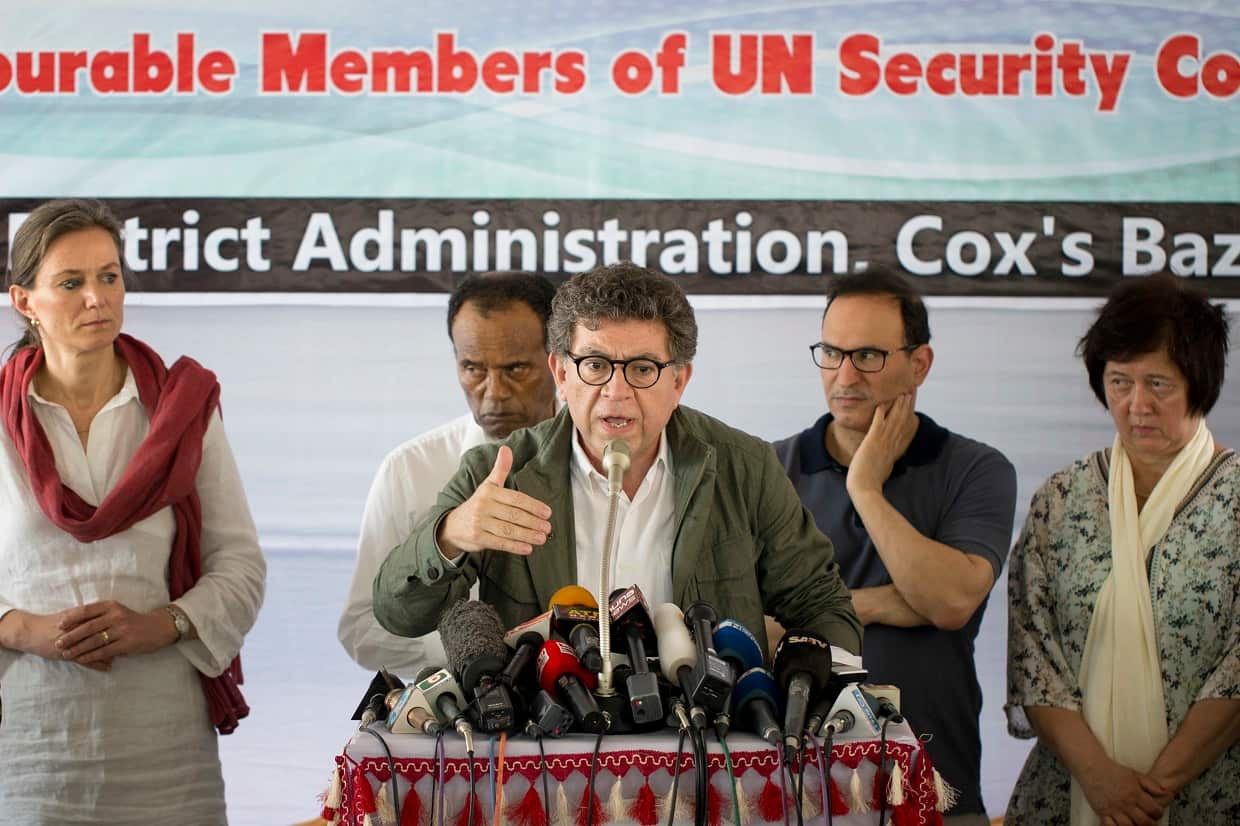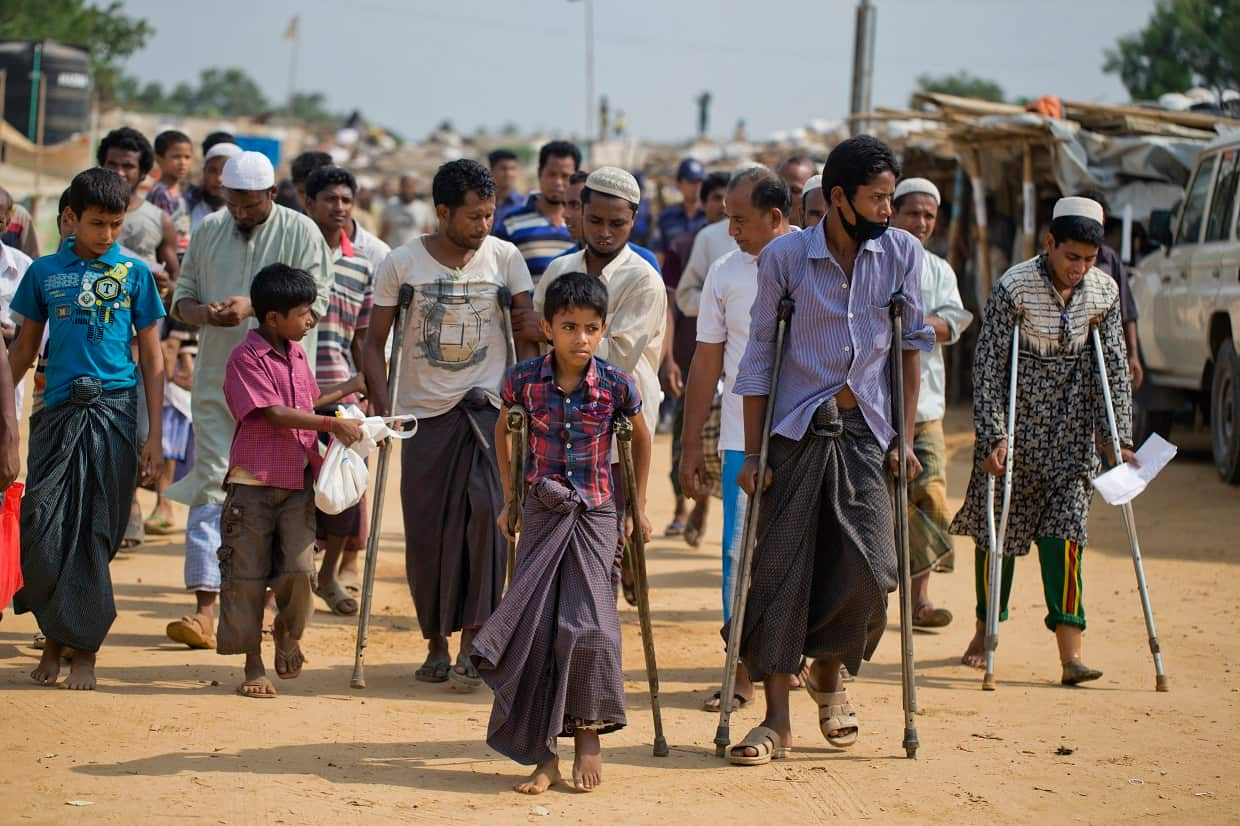Hundreds of Rohingya staged a demonstration Sunday as UN Security Council envoys visited refugee camps in Bangladesh where about 700,000 people who have fled Myanmar in the past year have sought sanctuary.
Some of the Muslim refugees broke down in tears as they told the ambassadors harrowing stories of murder and rape in Myanmar. The demonstrators waved placards demanding justice for atrocities against the refugees until they were dispersed by police.
Senior diplomats from the 15-member Security Council - including permanent members the United States, Russia, China, Britain and France - arrived in Bangladesh on Saturday for a four-day visit to the camps. They will go on to Myanmar where they are to meet civilian leader Aung San Suu Kyi.
Myanmar has faced intense international pressure over the military clampdown against the Rohingya launched last August that the United Nations has called "ethnic cleansing".
The Security Council has called for the safe return of the Rohingya and an end to the discrimination against them.

However, deputy Russian ambassador Dmitry Polyanskiy, whose country has supported Myanmar, warned that the council did not have a "magic stick" to resolve what is now one of the world's worst refugee crises.
"We are not looking away from this crisis, we are not closing our eyes," the Russian diplomat told reporters.
Britain's UN ambassador Karen Pierce said the Rohingya "must be allowed to go home in conditions of safety".
"It may take some time but we'd like to hear from the government of Myanmar how they wish to work with the international community," she said.
Safety needed
The UN envoys first visited Konarpara camp, a no man's land between Bangladesh and Myanmar where some 6,000 Rohingya have been trapped on bleak scrubland since the bloodshed began last year.
The camp's Rohingya leader Dil Mohammad said council envoys spoke with some women victims of the violence in Myanmar's Rakhine state, as well as community elders.
"We told them that we're staying here to save our lives. We're very much eager to go back to our land, provided our security is ensured by the UN," Mohammad told AFP.

Later, the diplomats went to the giant Kutupalong camp where hundreds of Rohingya staged the protest that was dispersed by police before the envoys arrived. A second was later held in the camp.
"We want restoration of our citizenship under Rohingya ethnicity. We want security and return of our confiscated land and properties," said Rohingya leader Mohibullah.
The council members were "shocked" by the accounts of rapes, murders and torture endured by the Rohingya in Rakhine, according to Mohibullah.
Myanmar has said the military operation in Rakhine was to root out extremists and has rejected nearly all allegations that its security forces committed atrocities.
The Security Council delegation is to meet with Bangladesh's Prime Minister Sheikh Hasina on Monday before leaving for Myanmar.
They are to go on a helicopter flight over Rakhine to see the remains of villages torched during the violence.
Kuwait's Ambassador Mansour al-Otaibi said the visit was not about "naming and shaming" Myanmar, but that "the message will be very clear for them: the international community is following the situation and has great interest in resolving it."
On Friday, Human Rights Watch called for the Rohingya crisis to be referred to the International Criminal Court.
"The lack of a UN Security Council resolution has left the Myanmar government convinced that it has literally gotten away with mass murder," HRW executive director Kenneth Roth told reporters in Yangon.

